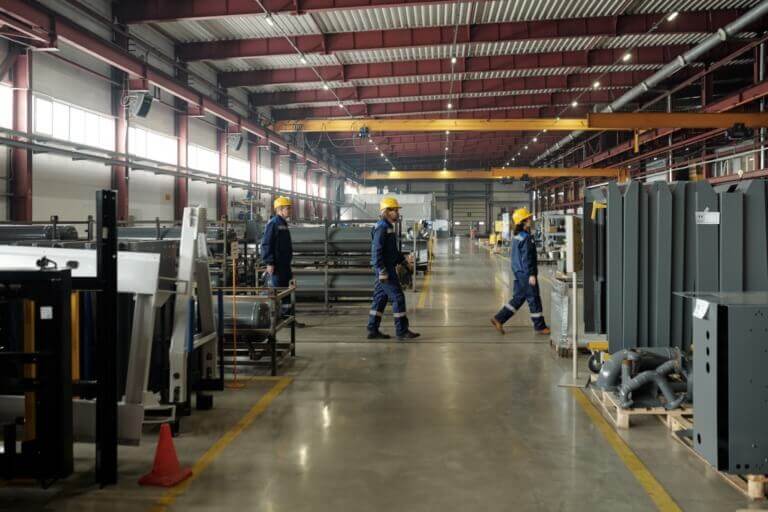The job market is changing—and fast. With the advent of remote work, the rise of the gig economy, and shifts toward automation, both workers and employers are navigating uncharted territory. Amid this evolving landscape, union advocacy is proving to be more important than ever. But unions today look different from the unions of the past. They’ve adapted, grown, and found new ways to support workers and businesses alike.
This blog explores the evolving role of unions, their benefits for employers, HR professionals, and workers, and how they’re tackling the unique challenges of the gig economy. Whether you’re an employer, an HR professional, or a worker, this post will provide actionable insights on the value of union advocacy in this rapidly shifting job market.
The Evolution of Union Advocacy
Union advocacy has come a long way since its origins in the industrial revolution, where unions fought for basic workplace rights like fair wages, reasonable hours, and safe conditions. Over the decades, unions expanded their scope to address new challenges—equal pay, anti-discrimination policies, and maternity leave to name a few.
Fast forward to today, unions are stepping up to meet modern demands. They now negotiate for remote work policies, flexibility in schedules, and protections for gig workers. They’ve also embraced technology, offering online membership drives and virtual tools to connect with a broader audience.
This evolution has enabled unions to stay relevant in a working world that is more dynamic and diverse than ever.
The Benefits of Union Advocacy for Employers
Unions aren’t just there for workers—they offer tangible benefits for employers, too. At first glance, the idea of negotiating with unions might seem daunting, but many businesses find that union partnerships lead to a host of advantages.
Here’s how unions contribute to organizational success:
- Stable Workforce: By addressing employee concerns, unions foster loyalty and reduce turnover, creating a more reliable workforce.
- Improved Productivity: Fair working conditions and strong labor relations boost morale, which translates to higher productivity.
- Dispute Resolution: Unions often serve as a mediator, helping to resolve disputes quickly and less disruptively.
Take Ford Motor Company as an example. Its long-standing collaboration with unions has contributed to a stable workforce and an adaptive working model. Businesses that actively engage with unions often find that the benefits far outweigh the challenges.
The Impact on HR Practices
HR professionals play a critical role in fostering positive relationships between unions and employers. But HR’s relationship with unions doesn’t stop at facilitation—it’s an opportunity to elevate workplace culture and employee satisfaction.
Union partnerships can provide HR teams with:
- Improved Policy Development: Collaborating with unions provides valuable insights into employee needs, helping HR design better workplace policies.
- Higher Employee Engagement: When workers feel heard and represented, engagement increases, reducing absenteeism and boosting workplace satisfaction.
- Enhanced Labor Relations: A strong partnership with unions aids HR in creating a collaborative environment that prioritizes mutual respect.
For example, by working alongside unions at Southwest Airlines, HR leaders developed industry-leading policies around safety and employee welfare. This cooperation built trust and strengthened workforce loyalty.
Empowering Workers Through Union Advocacy
For workers, unions are more than just organizations—they’re powerful advocates that ensure fair treatment and representation.
Here’s how unions empower workers:
- Protecting Worker Rights: Unions fight for equal treatment, anti-discrimination policies, and protections from unfair dismissals.
- Negotiating Fair Wages and Benefits: Workers in unionized environments typically earn higher wages and enjoy better healthcare and retirement benefits than their non-unionized counterparts. According to the U.S. Bureau of Labor Statistics, union members earn around 17% more than non-union employees.
- Amplifying Marginalized Voices: Unions provide a platform for marginalized workers, ensuring their voices are heard and their concerns addressed.
For individuals working in high-turnover industries like hospitality or retail, unions can serve as a lifeline, offering a sense of security and stability.
Union Advocacy in the Gig Economy
The explosion of the gig economy has introduced new complications for union advocacy. Gig work—freelancing, app-based work, and short-term contracts—offers flexibility but comes at the cost of job security, benefits, and stable income.
Unions are evolving to address these unique challenges:
- Organizing Gig Workers: Unions are now lobbying for legislation to redefine gig workers as employees, ensuring they receive benefits like health insurance and paid leave.
- Providing Advocacy: Organizations like the Independent Workers’ Union of Great Britain (IWGB) are stepping up to fight for fair pay and better working conditions for gig workers.
- Creating Networks: Unions are leveraging digital platforms to connect gig workers and provide a sense of community and collective power.
Efforts like these ensure that as work models evolve, workers are not left behind.
The Future of Union Advocacy
Looking ahead, unions are poised to play a critical role in shaping the future of work. Here are some key areas where their influence will grow:
- AI and Workforce Automation: Unions will advocate for reskilling and upskilling programs as automation replaces traditional jobs.
- Sustainability: With growing environmental concerns, unions will push for eco-friendly workplace practices and green jobs.
- Equity in Remote Work: Unions will continue to negotiate remote work policies, ensuring equitable treatment and fair compensation for telecommuters.
Both businesses and workers will benefit from engaging proactively with unions as these trends unfold. Employers can secure stable, motivated teams, while workers can maintain strong advocacy regardless of how the labor market changes.
Building a Collaborative Future Together
Union advocacy is no longer just about wages and working hours—it’s about building a collaborative future in a rapidly transforming job market. For employers, this means partnering with unions to foster innovation and adaptability. For workers, it’s about leveraging union support to grow, thrive, and be heard.
By understanding and engaging with unions, employers, HR professionals, and workers alike can create a more resilient workforce that meets the challenges of tomorrow.
If this article inspired you to take action, start a conversation today. Learn how to partner effectively with unions to build a sustainable and productive workplace for all.


